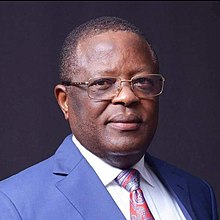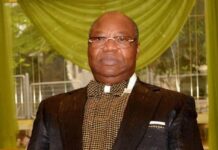The Nigerian media coverage of activities of political parties during the 2015 election was “highly skewed in favour of only two parties – the All Progressives Congress (APC) and the Peoples Democratic Party (PDP)”. This was one of the highlights of the report on the scorecard of print and online media during the election presented by Mr Lanre Arogundade , director, International Press Centre (IPC) on Thursday in Abuja.
He said “Though 26 political parties were listed on the website of the Independent National Electoral Commission (INEC), the mention of political parties in the monitored reports was highly skewed in favour of only two parties – the All Progressives Congress (APC) and the Peoples Democratic Party (PDP). For the six months covered by this report, political parties were used as sources 8,318 times out of a total of 42,595 sources. The APC had the highest mention with 3,911 or (47.01%) closely followed by PDP with 3,716 or (44.67%). All other 24 political parties shared the remaining (8.4%) of mention with a significant number without mention at all.
The monitoring of media coverage was organized by The Nigerian Press Council (NPC) and the International Press Centre (IPC) with support from UNDP/Democratic Governance for Development (DGD).
Speaking on women, under-represented groups and other sources Arogundade said “A total of 16,046 male and female voices were used as sources. Male voices dominated with 15,296 (95.32%) and female voices at a dismal 750 (4.68%). Consistent with other findings, the female voices have again been muffled in the political discourse leading to and transcending the 2015 general elections in Nigeria. This becomes even more unjustifiable when it is recalled that there was a female presidential candidate, female governorship candidate and female candidates for the national and state houses of assembly seats.
The report also highlighted the various early warning signals and sensational headlines among others.They were monitored from twelve national newspapers : Daily Sun, The Nation, National Mirror, Vanguard, The Punch, ThisDay, Daily Independent, The Guardian, Nigerian Tribune, Daily Champion, Leadership and Daily Trust;ten regional newspapers – Nigerian Chronicle, Daily Star, Nigerian Observer, Nigerian Pilot, Abuja Inquirer, Peoples’ Daily, Blueprint, The Gleaner, Desert Herald, and Fresh Facts and four (4) online news media – The Tide, The Cable, Sahara Reporters and Premium Times .Also three (3) social media platforms – Enough-is-Enough Nigeria, Reclaim Naija and INEC.
The keynote address on “Ethics in Election Reporting: Looking into the Future” was delivered by Nosa Owens-Ibie, a Professor of Communication, Media and Development and Dean, College of Social and Management Sciences (COSOMAS) Caleb University, Imota, Lagos. Owens-Ibie who is also the General Secretary,Association of Communication Scholars & Professionals of Nigeria (ACSPN) argued that “This is the age of mixed-media with technology facilitating the generation of content by sources beyond the traditional domains of journalism. There is a dilution of who a journalist is and an emerging redefinition of who and what constitutes audiences while ethics has assumed an elastic frame throwing up advocacy for “radical ethics”. Gatekeeping is evolving with the era of “filters”.
Dignitaries at the even included Mr Femi Adesina, special adviser to President Muhammadu Buhari on media and publicity as well as Mr Abdulwahab Odusile, the new President Nigerian Union of Journalists,NUJ as well as Mr Edetaen Ojo and Toyin Gabriel of UNDP among others.



